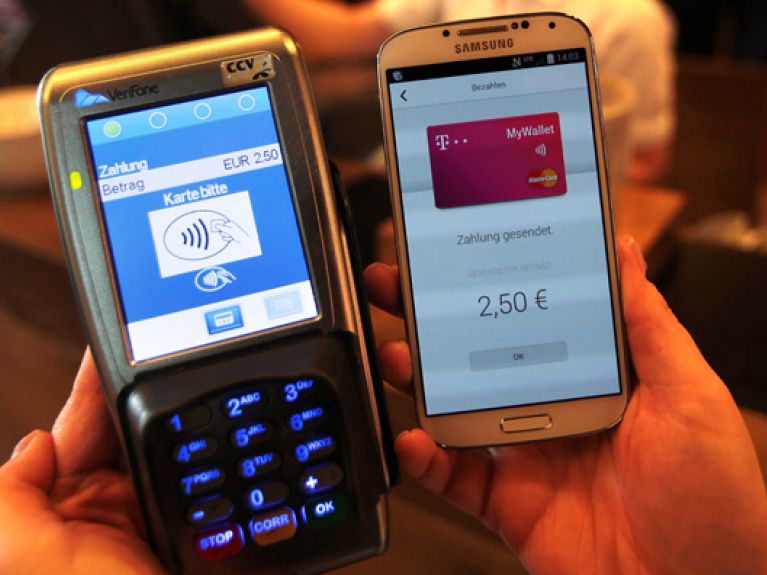Digital Agenda
The Federal Government has sketched out the guidelines of its digital policy in the Digital Agenda.

Have you been on the Internet yet today? Of course, you have. You answered emails, chatted with colleagues at the other end of the world, read the news and checked your bank balance. Perhaps you also quickly shared an amusing photograph with friends on Facebook and then ordered a birthday present or those great new sneakers. Afterwards you were able to work through another chapter of that online language course and reserve the cinema tickets for the weekend – or download a film to watch at home. For most of us, the Internet is now simply part of our everyday routine. Whether it is work, leisure, education, health, the media or commerce, the digital revolution has brought about major changes in almost all aspects of our lives. According to the Federal Statistical Office, 79% of people in Germany have direct access to the Internet, and 80% of them go online every day. The Internet is used by 2.5 billion people worldwide, and this figure is expected to double within five years. Even people who are not considered “digital natives” – in other words, young people under the age of 30 who grew up with the Internet – can barely imagine how they once managed to get through the day without clicking a mouse or swiping and tapping a screen.
“Digital designs have certainly brought about noisy changes to our culture and politics,” said the Internet pioneer Jaron Lanier, who received the Peace Prize of the German Book Trade in 2014. Although not heard by everyone, these “noises” are still always present and also include the shady sides of the Internet. They leave room for the collection of unimaginably detailed data profiles that make our habits and routines – see above – highly predictable, whether for commercial purposes or for other reasons that enable cyber crime and cyber espionage. Authoritarian governments often regard this free online space as a real threat and restrict access to the Internet. Freedom and security in the digital age are two poles that need to be balanced. “Data constitutes power and power must be subjected to rules,” said Federal Foreign Minister Frank-Walter Steinmeier in his opening speech for the Transatlantic Cyber Dialogue in June 2014 in Berlin. That is why Germany began focusing more strongly on international cyber policy in 2011 and aims to work for a free, open, secure and stable cyberspace in dialogue with partners worldwide (see interview on page 50).
The Internet is also very high on the domestic policy agenda in Germany. In August 2014, the Federal Cabinet agreed the Digital Agenda 2014–2017. This strategy paper was drawn up jointly by three ministries (Economic Affairs and Energy, Interior, Transport and Digital Infrastructure), which reflects not only the many areas affected by this subject, but also its great significance. The Federal Government sees the Digital Agenda as an “important component” of its economic and innovation policy, and it shows that it has recognised the digital transformation as a key challenge. The Agenda, which appeared under the title “Seizing the opportunities of digitisation”, demands a certain amount of agility, since it aims to achieve the far from easy balancing act of developing technological possibilities and use of the Internet, while simultaneously upholding the highest possible data protection and data security standards.
In all, the Digital Agenda encompasses seven areas of action: Digital Infrastructure; Digital Economy and Digital Workplace; Innovative Public Administration; Shaping Digital Environments in Society; Education, Science, Research, Culture and Media; Building Security, Protection and Trust within Society and the Economy; and European and International Dimensions of the Digital Agenda (see box). They cover a broad range of very different topics, such as networked production in Industry 4.0, the modernisation of European data protection law, improving the climate for business startups, IT solutions for big data, the digitisation of public administration, new forms of participation and also international cyber policy.
The main goal of the Digital Agenda is to make the advantages of digital progress available to all citizens. First of all, this involves ensuring that both private individuals and businesses have access to the Internet via powerful fixed and mobile networks at every location. Although that is not really a problem in towns and big cities, it can be in remote rural areas where there are often only slow connections. An important goal has been laid down in the Digital Agenda: a nationwide network with transmission capacities of at least 50 megabits per second is to be created by 2018 using glass-fibre cables and fast mobile links. This would, for example, enable the simultaneous transmission of six feature films in HD quality. Today 64% of German households already have access to this bandwidth. Digital infrastructure is also an important factor for companies: they will only move into areas where they have reliable access to high Internet speeds. The Internet has become an economic factor. Part of the funding for network expansion is to come from the sale of mobile communications frequencies. The development of digital infrastructure and broadband links will also play an important role in the 315-billion-euro investment plan announced by the European Union at the end of November.
The Opposition in the Bundestag and a number of business representatives have expressed the criticism that the Digital Agenda remains too vague: “The Federal Government’s Digital Agenda is a first step in the right direction. However, it needs to become more than a declaration of intent. Concrete measures must follow,” says Markus Kerber, Director General of the Federation of German industries (BDI). The high-tech association BITKOM welcomed the Digital Agenda as a “milestone in Germany’s digital policy”. It underlines the enormous opportunities of digitisation for the economy and society overall. “To become a real master plan, however, as a second step the Digital Agenda must be underscored by a very concrete implementation schedule,” believes BITKOM President Dieter Kempf.
The Digital Agenda is not intended to be a catalogue of answers to all the open questions on this subject, but aims instead to outline the principles of German digital policy. The Federal Government consciously wants future progress to be discussed and developed as part of a broader dialogue. It wishes to determine the implementation of the Digital Agenda jointly with industry, with employers’ and employees’ representatives, civil society and research. The National IT Summit will play a major role in this. This high-level gathering on the subject of digitisation has been organised annually by the Federal Ministry of Economic Affairs and Energy since 2006 and is now to develop strategies for strengthening Germany’s position as a centre of the IT industry. From now on, the IT Summit will be oriented towards the seven action areas of the Digital Agenda. The first step in this direction was already taken in October 2014 at the 8th National IT Summit in Hamburg, where Federal Economics Minister Sigmar Gabriel welcomed over 800 high-ranking representatives from the worlds of politics, industry and research. The experts discussed key themes of the Digital Agenda in three forums under the motto “Working and living in the digital transformation – together.innovative.independent”.
“The digital economy is an important sector that we would like to support with numerous programmes and measures. The Federal Ministry of Economic Affairs will spend approximately 430 million euros on this until 2018,” said Gabriel. Over 91,000 companies and 900,000 employees already work in this sector today. Responsible for a 4.7% share of industrial product, it has already caught up with the automotive sector and overtaken the traditional mechanical engineering industry. The initial findings of the 2014 Digital Economy Monitoring Report were also presented at the IT Summit: Germany performed well on many points compared to 15 other countries. When it comes to turnover in the information and communication technology (ICT) sector, it ranked fifth with a 4.3% share of global sales. Germany ranked fourth for use of new technologies in companies. However, it needs to make up ground, for example, on exports of ICT (twelfth place in the international ranking).
The Federal Government has also linked the Digital Agenda with the goal of making Germany Europe’s number one country for digital growth by 2018. That is certainly an ambitious target. But then again the Internet has never been particularly known as a place of modesty. ▪

